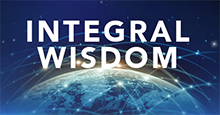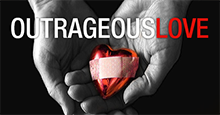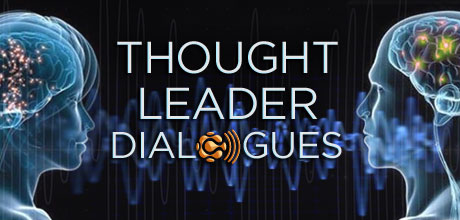Privacy, Post Modernism, Sex, Teachers and Injury by Marc Gafni
Privacy, Post Modernism, Sex, Teachers and Students: On Sex, Ethics and Injury by Marc Gafni
I want to share some brief insights on these important and often confusing topics. I have promised a full book on sexuality, which I hope to be able to offer in the not-too- distant future. I had written an early draft and outline of this book several years ago, but laid it aside simply because I was writing on other topics. In the meantime, let me make a few remarks about sex, privacy, and student-teacher relationships.
1) There are many potential models of sexual engagement. One of them is committed monogamy. This is a wildly beautiful deep and profound context for sexual expression.
2) Sexuality can also take place in a holy and wondrous way in post -conventional contexts, which are not familial or monogamous.
3) Sexuality within the monogamous and post-conventional contexts has many different textures, which I have written about in a chapter of my upcoming book, Your Unique Self, The Future of Enlightenment. Sex can be vital, tender, raw, rough, sweet, personal, cosmic, primal and much more.
4) We have to overcome the implicitly anti sexual bias, which often subtly defines any conversation about sex. This deeply ingrained bias is alive and well even fifty years after the sexual revolution. We remains ogling, prurient and less than our best selves when we talk about sex, particularly in regard to public figures with whom we have complex energetic relationships. All too often, people hear about a story of sexuality and project onto to it their personal shadows about sexuality, all of the stories of genuine abuse that they have ever heard, and more.
5) Most of the time teachers should not be sexual with people in their circle. It simply causes too much confusion and hurt.
6) However, sometimes a teacher may choose to engage a mutual sexual engagement with someone in his or her circle. {Junpo Roshi has already written a series of three excellent blog posts on the subject.} I have written and posted about this in the public sphere and talked about in several talks over the last years. This is my public position, and I stand in it. In this regard, transparency is essential. I have written clearly that I believe such relationships are possible. My views are posted on my website as videos and written blogs. I have talked about this in public many times.
7) A teacher must be transparent about his or her core beliefs and not hold a hidden belief while teaching or practicing the opposite. And if a teacher makes a mistake it should be owned and apologized for, just as when anyone else makes a mistake.
8) Any teacher makes mistakes. No teacher is an exception to this. Still, we should expect from our teachers a level of attainment, love, goodness and depth that is beyond well beyond the norm.
9) In teacher-student relationships, power is distributed in many and varied ways. In the relationships that I recently engaged, this was true as well. In both relationships, I did not hold formal institutional power. At the same time, the more interior forms of power were distributed along complex and paradoxical lines. That is the nature of virtually every authentic relationship. However, let me say beyond a shadow of a doubt both persons were and are powerful adult women. One of them was a senior student of mine. With neither was I involved in any form of psychological counseling at the time of the relationship. As the written skype and email records show, the relationships were the product of a mutual initiation and engagement.
10) Speaking again in general terms: Assuming that the student is a full and powerful adult and that the teacher is not teaching radical obedience but a more gentle form of transmission and mutuality— there is at times room for beautiful and sacred erotic love and contact between a teacher and those in his or her circle, if it is desired and held in mutual love and desire on both sides. To say it simply: it is possible for a teacher to date students, and this can be ethical even if t is held privately.
11) The notion of the powerful teacher and impotent student is an outdated myth. If the student publicly complains about a teacher, t the teacher may fall or at least be badly hurt. False complaints are relatively easy to file and notoriously difficult defend against. So the balance of real power in the raw secular sense of the word actually favors the student. A student may hold a position in governance bodies that support the teacher, or in institutions that support the work of the teacher, in which case the teacher is actually in some real sense the client of the student. In such a case, the teacher may be vulnerable to the student in a number of material and psychological ways.
12) Part of a mutual relationship, however, always involves the parties being willing to be vulnerable to each other. It is in holding and protecting each other’s frailty that the poignancy of authentic engagement is born. And this is true in polyamorous contexts no less than monogamous contexts.
13) As many power feminists have pointed out, even if there is a power imbalance that does not mean the relationship was wrong or abusive. We must reject the negative interrogations of power that the overly egalitarian “green meme” of consciousness has suggested.
14) People engaging sexually can do so in a transparent way so that their whole community is fully aware of and witness to the relationship. Or a sexual relationship can — by mutual agreement of both parties-be held in a private container.
15) Both transparency and privacy are genuine values, which need to live in dialectical tension with each other. Let me transparent about this. Transparency is not an absolute value. Nor is privacy. Idolatry for the old mystics meant the absolute fealty to one value. When one value -whatever it may be – is freed from the need to compete with other values, idolatry is always produced. And the end result of idolatry is always some form of injustice, evil or other forms of ethical malaise.
16) It is true that privacy is not easy, and that both parties who agree to privacy are cut off from forms of support and connection that might otherwise be available to them. Privacy should only be entered by mutual consent. However, privacy fosters a level of intimacy and safety that at times may be difficult to achieve in more public or transparent contexts.
17) The modern form of idolatry is extremism. Extremists virtually always believe in a good value. But they can never get too much of their value. Their value, be it choice, life or transparency becomes an absolute.
18) Transparency is a good value. It must compete –in dialectical tension–with privacy.
19) Privacy is an essential value for many reasons. One of them is precisely because of the great post modern- insight that “context” is everything. When one is transparent. The most that can really be shared is the technical facts. The nuance and feeling tone of context and intention is virtually impossible to share in a superficial way. This is one of the reasons why privacy is such a key value. Paradoxically, to share facts without deep context and feeling tone is to tell a lie about the interior of reality. The quiet dignity of privacy is sometimes to be preferred.
20) At the same time, it is critical not to use privacy as a way to cover up sexual abuse or the like. Privacy is sometimes — but not always- appropriate in situations where the post conventional is too nuanced to be subject to the eyes of a prurient and non discerning public.
21) What is called the Green Level of Consciousness holds an essentially contradictory position from which great brutality often arises. On the one hand, Green says that transparency is an ultimate value. Containers per se are regarded with suspicion at best, and as virtually evil at worst. The facts that you might on rare occasion not share something with a close friend or colleague because you have a higher commitment to privacy in a particular context that is considered a form of betrayal. This way of thinking results from the false idolatry–holding up transparency as the only and ultimate value. It also contradicts a second value of Green. Time and again, Green consciousness reminds us correctly of the postmodern insight that “Context is everything”. Without getting into the limits of that insight at this time – allow me to make one point. If context is everything, then transparency is often a lie–because the one thing that is virtually impossible to transmit is context. If you do manage to transmit it to one or two close people, once a story is repeated down the line of gossip, the context in its entire critical nuance and texture is completely lost. So, when you are being transparent about something – let’s say a relationship – you are often only able to transmit the facts but not the context. Hence, you wind up essentially lying about the fullness of the relationship. This is one of the many reasons for the preference of privacy.
22) All of this does not make privacy into an undisputed value. The need for privacy needs to live in relationship with the need for transparency and in each unique situation the appropriate balance must be reached by mutual agreement between the parties.
23) One of the huge problems with holding a container of privacy in a relationship is that it almost always necessitates lying. Yet in certain circumstances, lying can be the most ethical decision. You really have to look at it in a case-by-case context.
24) One thing I did not consider seriously enough in engaging this relational possibility in a private context was the fact that it meant I would not share the relationships with people who were close to me. I have reflected upon this in the last few weeks, and believe that this by itself may be sufficient reason to argue for transparency. Many have made that point. I am not yet clear on this issue.
25) To recapitulate- dating or sexual engagement between people, including the occasional engagement between the adult powerful teacher and the adult powerful student, who are consciously choosing to engage in dual relationship may be transparent or they may be held privately. Both are legitimate options, depending on the inner context of the situation and on a multitude of variables, which need to be weighed wisely and in holy authenticity from what the Integral world calls a Second Tier, or integral perspective of consciousness.
26) Which way is better- privacy or transparency or some mixture of the two–depends on many variables which must be examined in depth in every situation.
27) My l preference in life has always been for personal privacy. Other than when I am public, I am by nature private, and painfully so. I love my privacy and love the depth of ease and gentle surrender that a container of privacy allows.
28) Sadly, I have realized that for me — personally —that is simply not an option.
29) Because of this I have made a commitment to hold no relationships that are exclusively private between myself and a person. Every relationship will always be witnessed and any partner I have is always welcome to share the relationship. I will not share my personal life in the broad public simply in order to maintain the delightful intimacy of privacy. But any partner of mine who would like to share our relationship is welcome to do so.
30) I do not think that love is a Zero Sum game. I think that one can genuinely love more than one person in a profound, personal, and passionate manner. I have said this time and again in public talks. Our loves lists are too short. I think polyamory is a genuine option for some people at particular points in their lives. Not for everyone or even for most people.
And not at every point in life. But for some people at particular stages of life, polyamory is a genuine ethical and holy option.
31) Eros and Sex are awesomely beautiful.
32) No one model works for everyone. People must be free to develop their erotic lives. We need more connection and Eros, not less.
33) Erotic contact and encounter must always be rooted in the ethics of radical love, radical mutuality, radical giving in which giving and receiving are one, and which always intends its pleasure for the sake of the all as well as for the sake of each other.
34) People hurt each other in relationship. All the time. When we hurt each other we should apologize and do our best to make amends. There is no relationship without hurt, yet there is no love without forgiveness
35) Hurt cannot be allowed to be deployed as a cover-up for malice.
36) Men and women often use romantic or sexual hurt as a cover to accomplish their agendas of malice and power often under the noble guise of protecting the weak.
37) People should not work out the personal issues between them in the nasty and often muck- racking world of Internet blogs. We know by now that there are vigilante bloggers who do not bother to check facts, which regularly publish distortions from unreliable sources, which have no accountability, who often have hidden personal agendas, which are self-appointed judges without responsibility or authority, cannot be allowed to formulate or manipulate communal policy.
38) Sometimes a blogger is intelligent on one set of issues but completely disreputable on another set of issues. See Harold Solove’s book The Future of Reputation on the damage done by vigilante Internet blogging that ignores the simple standards of fairness and decency.
39) In my life, several months ago, I stepped out of the domestic romantic container that I was in with my partner – by mutual and loving agreement.
40) After that time I had two relationships with powerful adult women.
41) I shared these relationships with a close woman friend and advisor in these matters.
42) I stand for the beauty and goodness of those relationships. And I apologize always for any way in which I could have showed up better. Or caused hurt. And ask for forgiveness for the inevitable hurt that happens in the complexity of it all, even when we have the best intentions.
43) By mutual agreement – I entered into these relationships in the context of privacy.
44) That seemed like the more gentle and honoring way to hold the relationships.
45) I stand in my truth of the goodness and possibility of such relationships.
46) I have also come to the final conclusion in my life -as mentioned above – that for me personally – holding a relationship privately creates vulnerability and potential hurt, rather than safety and privacy. One of the reasons is that when something is held in container -it creates a difficult situation when someone in my close circle asks about the relationship. Loyalty to the container demands privacy. But for a close friend not to be told the truth about the relationship undermines trust, with all of the pain and fallout that ensues as a result.
47) I myself have not made a decision as to my direction. I am in deep conversation with my Zion’s mom about what the nature of our future relationships ought be. We love each other very much and have very different visions of the next part of our lives and where we should be spending out time. We our both committed to Zion and are exploring with enormous love, pain and mutual respect what right relationship should be between us.
48) Finally – I am willing at any time or place to engage in public dialogue on this topic in a way that honors the issues, is not witch-hunting, but seeks genuine clarity.
49) I am fully willing to apologize for any mistakes I may have made and would hope that the same would be true of others.
50) Attached here are a number of documents, which may be helpful.
51) The first is a link to a letter by Sally Kempton about these same issues five years ago. “On Controversy”
52) The second is a link to an article I published in the Integrales Forum Journal, a respected Integral journal about my position on the possibility of a teacher dating students– the same issue discussed above in this blog post. http://integralesleben.org/de/il-home/il-integrales-leben/anwendungen/religion-spiritualitaet/if-paper-on-the-discussion-about-spiritual-teachers/
55) The third is a link to a video on the CIW website where I discuss the possibility and even desirability in certain contexts of dual relationship between teacher and student. https://centerforintegralwisdom.org/world-spirituality-project/democratization-of-enlightenment/spiritual-teachers-and-students/














